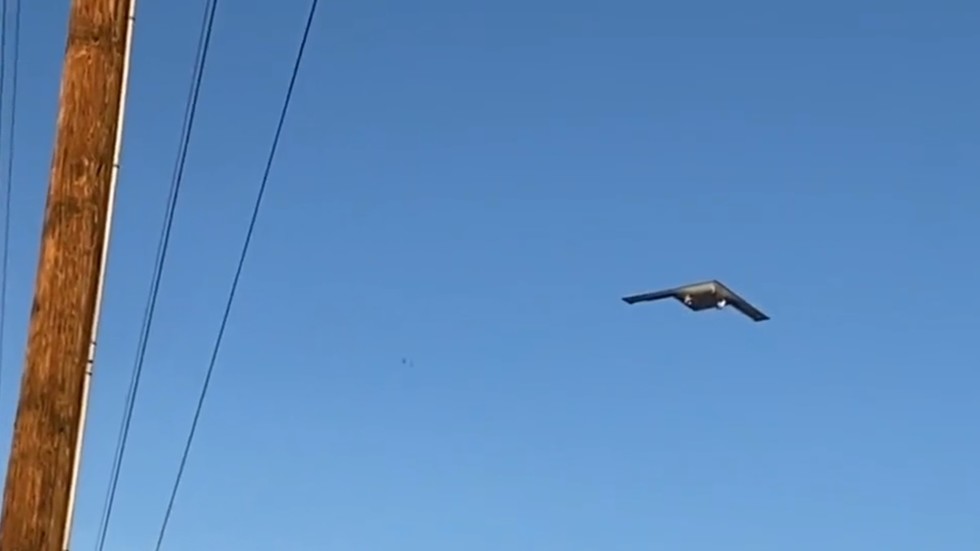
The nuclear-capable B-21 Raider is expected to replace several older jets in the coming years

© X / ShorealoneFilms
The US Air Force has conducted the first test flight of a new long-range stealth bomber, one of six operational prototypes set to be produced by American arms giant Northrop Grumman.
Dubbed the B-21 Raider, the jet was spotted in the skies over Northrop’s Palmdale, California research facility on Friday afternoon, with footage of the fly-over captured by aviation photographer Matt Hartman.
The Air Force later confirmed the flight, calling the trial “a critical first step in the test campaign managed by the Air Force Test Center and 412th Test Wing’s B-21 Combined Test Force.” The new aircraft will “provide survivable, long-range penetrating strike capabilities to deter aggression and strategic attacks against the United States, allies, and partners,” Air Force spokesperson Ann Stefanek added.
B-21 RAIDER FIRST FLIGHT 11-10-23 #RAIDER33#B21Raiderpic.twitter.com/3tEKudqDiw
— Matt Hartman (@ShorealoneFilms) November 10, 2023
Part of the Pentagon’s Long Range Strike Bomber program launched in 2011, the B-21 is expected to enter service sometime in 2027, according to Lt. Gen. James C. Dawkins, deputy chief of staff for Strategic Deterrence and Nuclear Integration. Officials hope the jet will replace several aging bombers over the coming decades, including the B-1 Lancer, the B-52 Stratofortress and the B-2 Spirit.
#B21#B21Raider#B21FirstFlightA memorable day! pic.twitter.com/oeL7cuJtbK
— Robert 🌻 (@Genjo_N_Mojave) November 10, 2023
Northrop Grumman, which also designed the B-2, acknowledged Friday’s test flight in a statement, saying it would “validate our digital models” and marks “another step closer to reaching operational capability.”
B-21 first flightFull big dickAmerica Fuck terrorists#B21pic.twitter.com/S7RCBxtMRV
— Brian’s Stepdad (@d_great_white) November 10, 2023
During a House committee hearing last year, the Pentagon’s then-deputy chief of staff for plans and programs, Lt. Gen. David S. Nahom, said the military could seek to acquire up to 145 B-21s once the program is complete.
Here’s a side-by-side comparison of the B-21’s profile from this morning’s flight versus the B-2 Spirit. pic.twitter.com/9FOFj5xCwl
— Alex Hollings (@AlexHollings52) November 10, 2023
The new stealth jet has faced setbacks over the course of its development, with the Air Force postponing its maiden flight last year for unspecified reasons, citing the need to protect “sensitive program information from adversary exploitation.”




